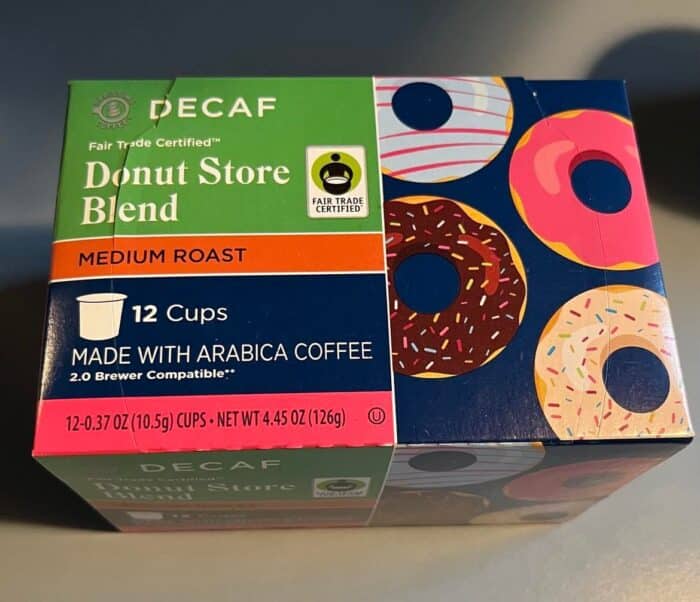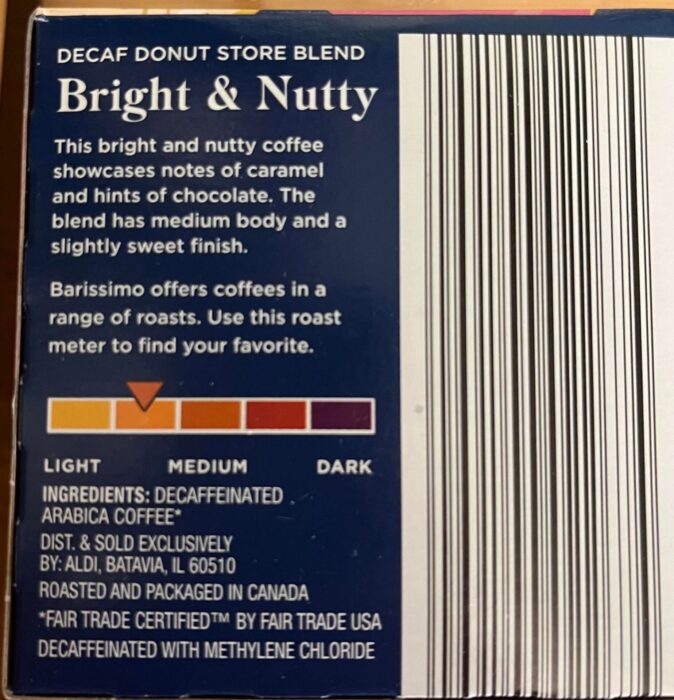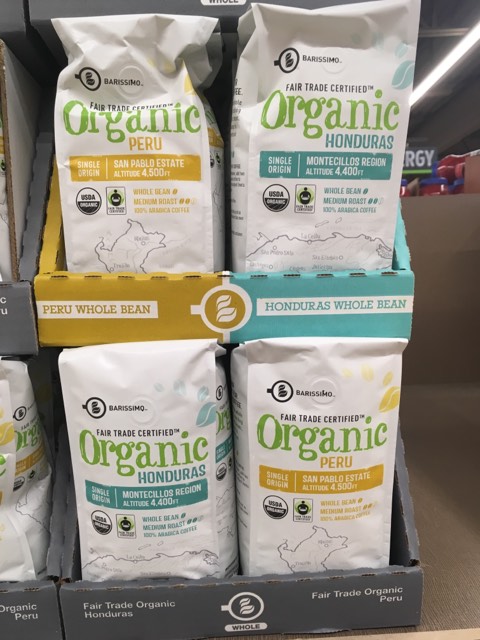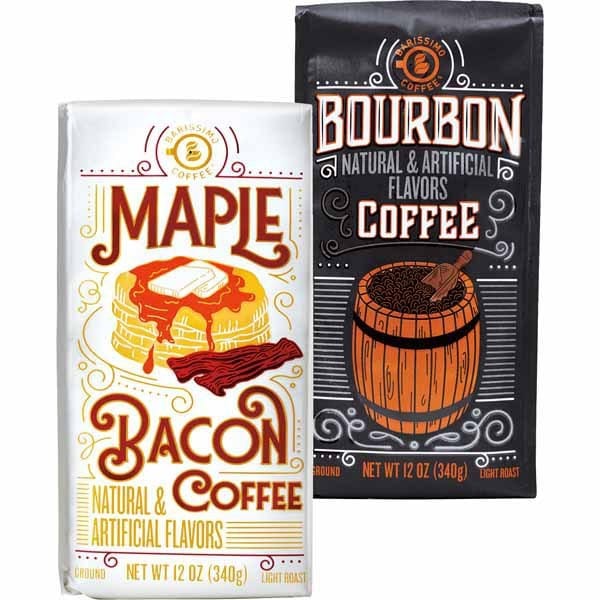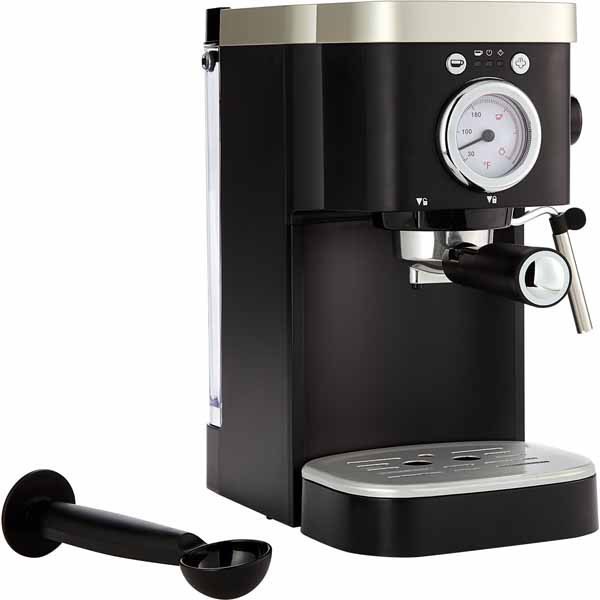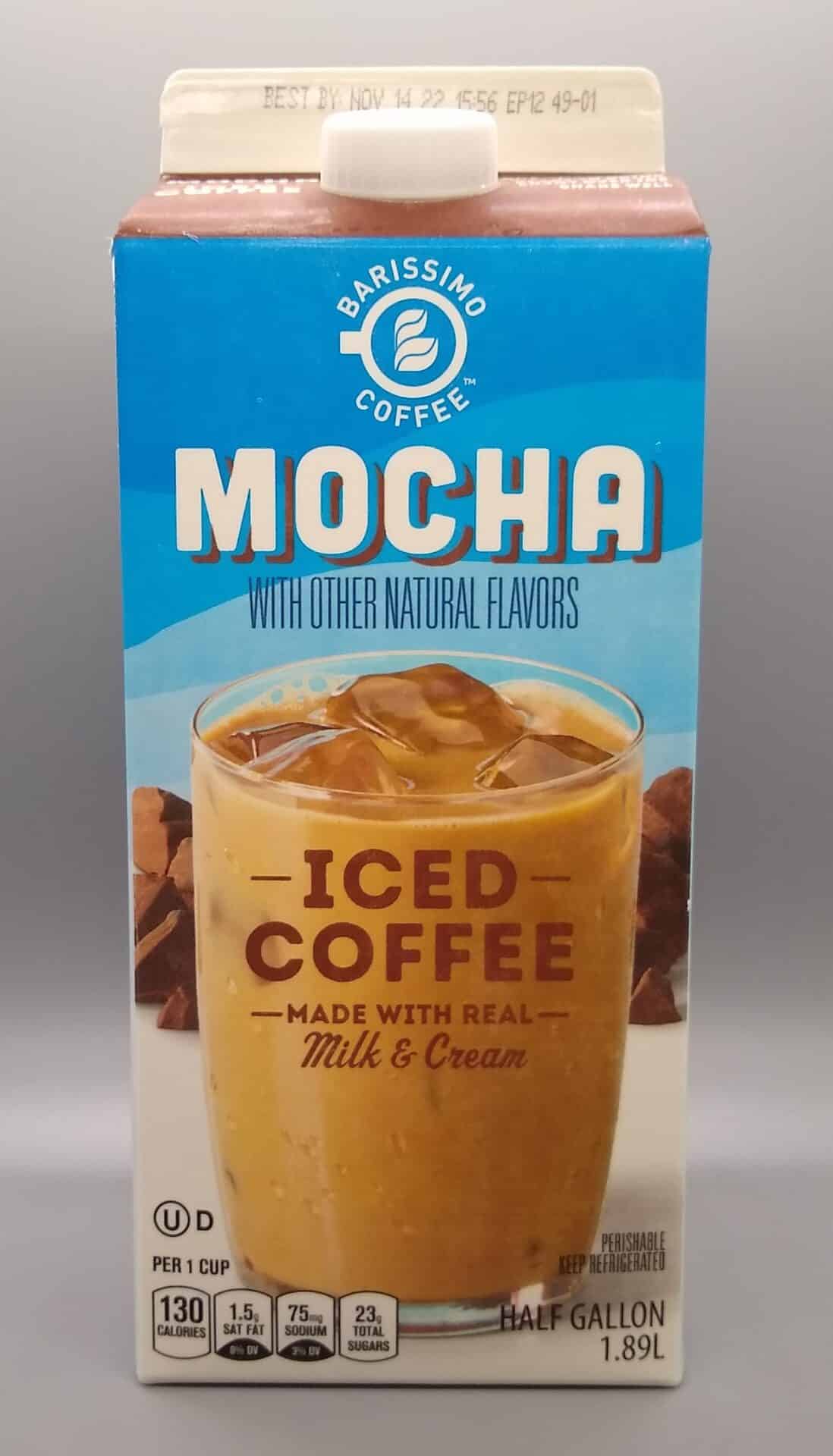One thing I appreciate about Aldi is how many of their coffee offerings are Fair Trade Certified. I’ve reviewed the Barissimo Fair Trade Single-Origin Organic Coffee, and this line is still one of my favorites when I use my French press at home. But sometimes when I travel and stay in Airbnbs or similar places, I need to buy K-Cups instead.
Recently, I cut back on caffeine, so when a trip took me to a place with a Keurig, I decided to give the Barissimo Donut Store Blend Decaf K-Cups a try. They cost $4.65 for a pack of 12 at my local Aldi. The coffee was roasted and brewed in Canada.
Using K-Cups:
To use these coffee pods, you must have a Keurig or similar machine that takes K-Cups. The box states these cups are 2.0 brewer compatible. (Note: Aldi sometimes sells a single serve coffee maker.) Follow the manufacturer’s directions for brewing your coffee. The box advises to brew hot coffee at the 8-oz. setting for best results and iced coffee at the 6-oz. setting. Brewing larger quantities makes a more diluted, weaker coffee. The package also states that the K-Cups may be recyclable and advises you to check locally for recycling options. The box itself is recyclable cardboard.
Taste:
The Donut Store Blend is advertised as a Medium Roast with notes of caramel and chocolate, and their “Roast Meter” places this between Light and Medium in flavor. “Donut store” coffees are a nod to Dunkin’ Donuts’ famous brew, but this coffee is milder than theirs. It’s made from Arabica beans, which are known for smooth, complex flavors and are a popular choice for medium roast coffees.
Brewing it at the recommended amount and setting yielded a mild flavor with noticeable caramel notes and a slight sweetness. I don’t taste any chocolate, but it’s still pleasant. I also tried brewing it on the “strong” setting, which brought it closer to tasting like a dark roast (which I prefer), but it lost the sweetness in the process.
Fair Trade Certification:
Unfortunately, coffee production has a reputation for poor working conditions in developing countries and even slave labor. Fair Trade Certification requires producers to ensure safe working conditions and equitable opportunities for their workers while giving them the opportunity to invest in their local communities.
The Verdict:
This coffee won’t replace my favorite method of brewing decaf dark roast in my French Press at home, but when I’m traveling, it’s a good, reasonably priced, low-caffeine alternative. I would definitely buy it again.

